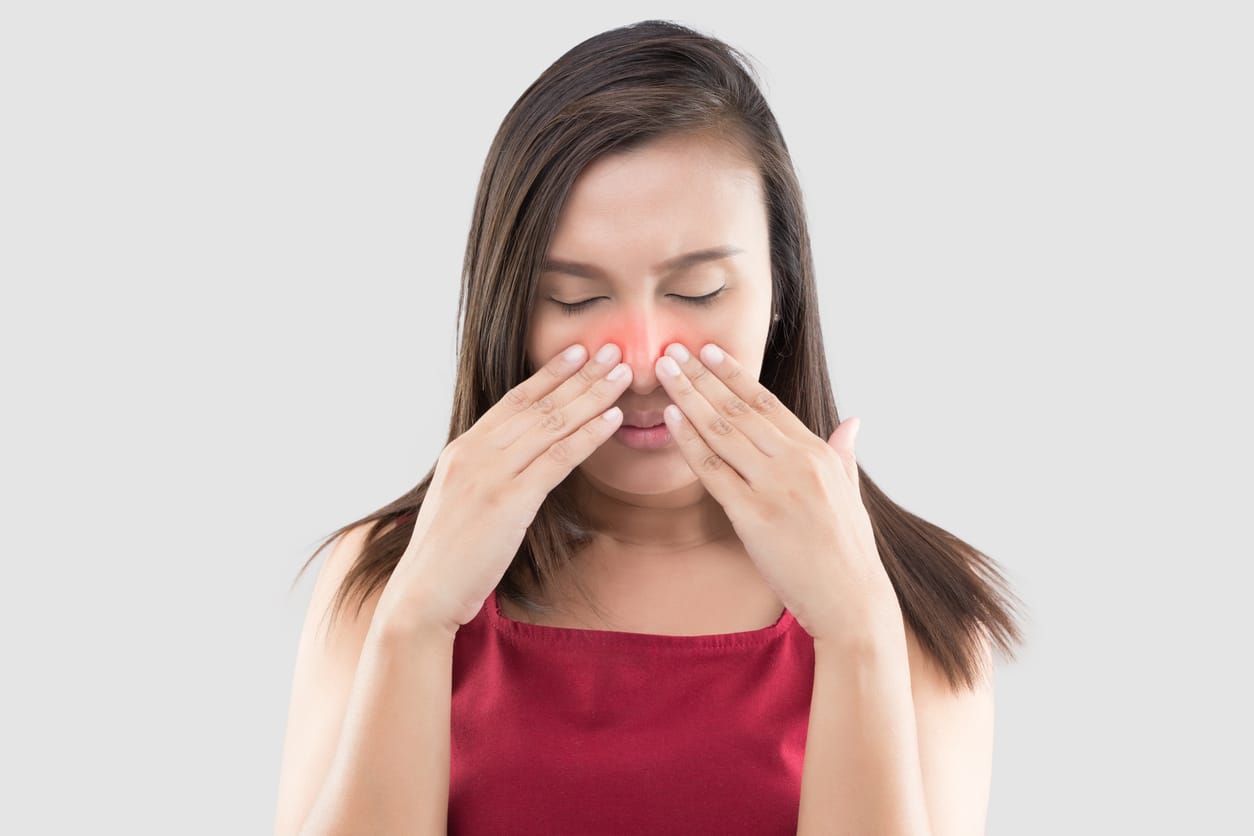A sinus infection is an inflammation of your sinus tissues, the four pairs of air-filled cavities behind your face. Symptoms like facial pressure, congestion, runny nose and headaches are key indicators of a sinus infection. While both viral and bacterial infections can cause sinusitis, distinguishing between them is key to effective treatment.
Viral vs. Bacterial Sinus Infections: What To Know

Viral sinus infections are the most common and often develop after colds or the flu. They typically improve within 10 to 14 days without medical intervention. Since antibiotics are ineffective against viruses, treatment focuses on symptom relief. A few treatment options include:
- Temporary over-the-counter decongestants
- Antihistamines
- Facial steaming
- Nasal saline rinses
- Hydration with water, herbal tea or fruit juice from The Blend
Bacterial sinus infections, on the other hand, last longer. They’re the most common cause of chronic sinus infections (lasting longer than 12 weeks). Your ENT provider will likely recommend antibiotics to clear the infection. You can use antibiotics alongside saline nasal rinses, hydration and facial steaming, but you should ask your provider before taking decongestants or antihistamines.
Reducing the Risk of Chronic Sinus Infections
If allergies, nasal polyps or structural abnormalities like a deviated septum are causing frequently recurring or chronic sinus infections, your ENT specialist may recommend one or more of the following:
- Endoscopic sinus surgery (ESS). FESS is a minimally invasive procedure that helps identify and correct issues like nasal polyps or a deviated septum, improving sinus drainage and reducing infections.
- Balloon Sinuplasty. Balloon Sinuplasty is an effective alternative to traditional sinus surgery. It uses a small balloon, guided through the nasal cavity and inflated, to clear nasal and sinus blockages for better airflow and drainage.
- Allergy treatment. Allergy treatments like medication, immunotherapy or lifestyle adjustments can minimize sinus inflammation. Talk to one of our allergy specialists about the best options for managing your allergies.
- Good hygiene practices. Good hygiene practices like frequent hand washing, avoiding shared food or drinks and regular cleaning can help reduce your contact with viruses and bacteria, minimizing your chances of infection.
Knowing the difference between viral and bacterial sinus infections helps you choose the right treatment for quick recovery. If you’re dealing with persistent sinus problems, contact Spartanburg | Greer ENT & Allergy today to schedule a consultation with a specialist.
